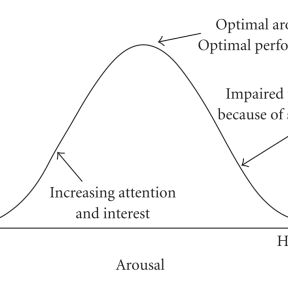
Meditation
Meditation is a mental exercise that trains attention and awareness. Its purpose is often to curb reactivity to one's negative thoughts and feelings, which, though they may be disturbing and upsetting and hijack attention from moment to moment, are invariably fleeting.

It’s impossible for us to make our thoughts disappear; often, the more we try to suppress them, the louder they become. But practicing meditation can help clear away the mind’s chatter. Studies show that meditating even for as little as 10 minutes increases the brain's alpha waves (associated with relaxation) and decreases anxiety and depression.
Meditation has been shown to increase focus, reduce stress, and promote calmness. It can also help people recognize and accept negative emotions—especially when it is done in combination with mindfulness practices that keep people grounded in experiencing the present. It may be particularly effective when the meditator has social support, such as in a structured group setting or with the help of a friend or family member.
In mindfulness meditation, one turns their attention to a single point of reference, such as one’s breath or bodily sensations, or a word or phrase known as a mantra. The practice has been shown to decrease distraction and rumination, make negative automatic thoughts seem easier to let go of, and promote greater enjoyment of the present moment. Loving-kindness meditation directs one’s focus toward developing feelings of goodwill, kindness, and warmth for others. It can help boost empathy and compassion, and curb charged responses to negative thoughts.
Meditation acts on areas of the brain that modulate the autonomic nervous system, which governs such functions as digestion and blood pressure—functions heavily affected by chronic stress. Through its physiological effects, meditation has been found to effectively counter heart disease, chronic pain, and other conditions. It is also valuable in improving emotion regulation.
Meditation doesn’t require someone to get rid of all their thoughts, which isn’t even possible. While meditating can be relaxing, it is also physically and mentally demanding to train oneself to focus differently. People tend to think of meditating as a solitary activity, but it can be just as beneficial in a group setting. And people often believe they’re not capable of meditating, but the truth is that there is no wrong way to meditate—just trying can bring about positive changes.
For people who struggle with emotional regulation generally, or with specific psychiatric diagnoses, meditation can be a way to circumvent or avoid negative self-talk that is otherwise difficult to ignore. Meditation helps to provide an emotional buffer, giving an individual time to reflect before succumbing to negativity or acting impulsively. As a result, meditation has become a common prescription for mental health conditions.

Most forms of meditation are meant to decrease distractibility and promote focus on and enjoyment of the present moment. Like many forms of meditation, requires that one turn attention to a single point of reference. It can involve focusing on the breath, on bodily sensations, or on a word or phrase, known as a mantra. Successful meditation takes into account both internal and physical states:
It’s common for a person’s thoughts to wander during meditation, especially when they are first starting out. Trying to stop thinking completely is futile and often serves to intensify unwanted thoughts. Instead, the key is to notice when the mind wanders and bring one’s attention gently back to the meditation practice.
Meditation involves a heightened focus on the present moment that can be disorienting at first. Many beginners start with short sessions of three to five minutes each and gradually increase the time they spend meditating. The length of the meditation is less important than being consistent, as many meditators agree that they see results practicing just 10 minutes every day.
Contrary to the image of a meditator sitting cross-legged with eyes closed chanting “Ohm,” there are many ways to meditate that don’t require perfect stillness. Some common styles include walking meditations, movement meditations, and even meditating while performing everyday activities. Meditation can and should be individualized to benefit the meditator.














